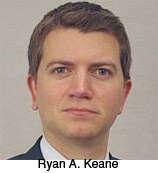9/11/2013
Missouri Appeals Court Revives Red Light Camera ChallengeAppellate court finds Florissant, Missouri red light camera ordinance in violation of state law.

The legal battle over red light cameras in Missouri got hotter on Tuesday with the state's second highest court deciding that a lower court got it wrong when it upheld Florissant's automated ticketing program. The St. Louis suburb and American Traffic Solutions (ATS) had convinced Circuit Court Judge Tommy W. DePriest Jr. to dismiss the case against the cameras without a trial.
"We hold that the ordinance conflicts with Missouri law because it regulates moving violations without requiring the municipal court to report the violation to the Director of Revenue as required by Missouri statute." Judge Kurt S. Odenwald wrote for the three-judge appellate panel. "Whether the ordinance is a revenue-generating scheme advanced under the guise of Florissant's police power is a factual question not appropriate for resolution on respondents' motions to dismiss."
Cities in Missouri have allowed companies like ATS to issue photo tickets at great legal peril since the General Assembly has not sanctioned camera use. Attorney Ryan A. Keane filed a class action lawsuit against Florissant hoping to have every ticket refunded from the program because of the conflict with state law. The appellate judges agreed that state law requires points to be assessed against the license of anyone convicted of a moving violation. Red light cameras in Missouri only issue tickets to vehicle owners, because of the great expense and effort required to positively identify the driver. Florissant declared red light violations as non-moving violations to avoid issuing points.
"Common sense and collective experience suggest that a person cannot fail to stop at a red light without being in motion," Odenwald ruled. "The conflict between these two concepts underscores the error of the trial court's judgment. Although the notice of violation informs the recipient that a violation of the ordinance is a non-moving infraction and no points will be assessed against the accused's license, the conduct regulated by the ordinance and described in the notice of violation is the failure to stop at a red light, i.e., a moving violation."
The appellate judges also ruled that Laura Unverferth, a vehicle owner who paid ATS the $100 photo fine, could still challenge the program's constitutionality because the tickets failed to provide a court date as required under state law. This due process violation invalidated the common camera company argument that payment of the fine constitutes a waiver of any right to a refund.
"Because Unverferth has pleaded that the notice of violation failed to provide her with a court date, we reject the suggestion that her payment of the fine as directed by the notice of violation somehow constituted a conscious decision by Unverferth not to assert any defenses to the alleged violation," Odenwald wrote. "The notice of violation that was attached to the petition gives an alleged violator no guidance or information as to how to challenge the alleged violation."
The court ruled against the camera opponents in refusing to grant declaratory judgment or an injunction against the camera program since the program can be challenged in circuit court. It also upheld the city's authority under home rule to enact the red light camera ordinance. An ATS attorney seized on this finding to trumpet the ruling as a win, but the fight is far from over.
"It's unclear why respondent ATS is claiming a victory," Keane told TheNewspaper. "The Court of Appeals reversed seven of the trial court's findings, which is a victory for appellants. Significantly, we prevailed, as a matter of law, on the point-assessment argument. Moreover, as a result of today's decision, we now have the right to conduct discovery on a number of important issues."
ATS and the city will be forced to turn over sensitive documents that will answer the factual question of whether or not the program's true motive is revenue generation. Keane plans to challenge the handful of points on which he lost before the state Supreme Court. The three-judge panel essentially asked Keane to do so, expressing "concerns" at the "distasteful" implications of presuming the vehicle owner is the driver, but explaining in a footnote that is has no choice given the high court's 1949 St. Louis v. Cook decision upholding that city's parking ticket ordinance.
"Until the Missouri Supreme Court reconsiders its holding in Cook, Cook remains precedent," Judge Odenwald wrote. "We are constrained to follow its holding and will not stray from its mandate."
The case will now return for further proceedings in circuit court. A copy of the decision is available in a 600k PDF file at the source link below.


